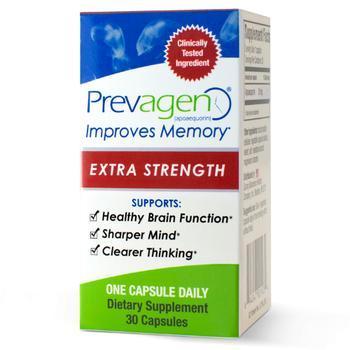"Clear-cut fraud, from the label on the bottle to the ads," NY attorney general argues
January 9, 2017 The Federal Trade Commission and New York Attorney General Eric T. Schneiderman have sued dietary supplement maker Quincy Bioscience, LLC, charging that it deceptively markets the widely-sold supplement Prevagen by falsely claiming that it improves memory, despite lacking reliable scientific evidence.
The Federal Trade Commission and New York Attorney General Eric T. Schneiderman have sued dietary supplement maker Quincy Bioscience, LLC, charging that it deceptively markets the widely-sold supplement Prevagen by falsely claiming that it improves memory, despite lacking reliable scientific evidence.
The marketing for Prevagen is a clear-cut fraud, from the label on the bottle to the ads airing across the country, said Schneiderman. Its particularly unacceptable that this company has targeted vulnerable citizens like seniors in its advertising for a product that costs more than a weeks groceries, but provides none of the health benefits that it claims. Quincy Bioscience must be held accountable for deliberately misleading consumers across the country.
Quincy Bioscience said it "vehemently disagrees" with the allegations and said the case was "another example of government overreach and regulators extinguishing innovation by imposing arbitrary new rules on small businesses like ours."
Prevagen is safe. Neither the FTC nor the New York Attorney General has alleged that Prevagen can cause or has caused harm to anyone. And hundreds of thousands people tell us it works and improves their lives," the company's statement said.
Prevagen, which can cost up to $69 per bottle, is sold at major retailers and pharmacies across the country, including CVS, Walgreens, Rite-Aid, the Vitamin Shoppe, and Amazon. Sales of Prevagen in the United States from 2007 through mid-2015, minus refunds, totaled $165 million.
"Clearer thinking"
In its advertising and product labeling, Quincy Bioscience claims that Prevagen is clinically shown to support clearer thinking and to improve memory within 90 days yet, the primary support Quincy Bioscience has for these claims is a single study that failed to show a statistically significant improvement in the treatment group over the placebo group on any of the cognitive measures used, Schneiderman said.
Quincy Bioscience developed and marketed Prevagen on the theory that its active ingredient, apoaequorin, a dietary protein, enters the human brain to supplement proteins that are lost during the natural aging process. Yet the complaint charges that Quincy Bioscience lacks any studies showing that this orally-administered protein can cross the human blood brain barrier, and in fact, Quincys own studies show that the protein is rapidly digested in the stomach and broken down into amino acids like any other dietary protein.
The marketers of Prevagen preyed on the fears of older consumers experiencing age-related memory loss, said Jessica Rich, director of the FTCs Bureau of Consumer Protection. Yet despite the defendants claims, there is no scientific proof that use of the product will improve memory or provide any other cognitive benefit.
In its statement, which was not attributed to any specific individual, Quincy insisted its product works as claimed.
Quincy has amassed a large body of evidence that Prevagen improves memory and supports healthy brain function. This evidence includes preclinical rat studies, canine studies, human clinical studies, and, most importantly, randomized, double-blind, placebo-controlled human clinical testing. This type of testing has long been acknowledged by both the FTC and the FDA to be the gold standard for scientific evidence.
The lawsit wasfiled in the U.S. District Court for the Southern District of New Yorkand seeks a ban on further false claims about Prevagen, restitution for consumers, disgorgement of ill-gotten gains, and civil penalties for violations of state law.



















